Senecio is a genus of flowering plants in the daisy family. They are a large genus of plants with over 1,250 varieties. Normally, they have small flowering heads that are clustered together on the branches. They come in green, yellow, white, blue, and purple. Here are a few of our favorite types of Senecio succulents.
1. Senecio barbertonicus – Barberton groundsel
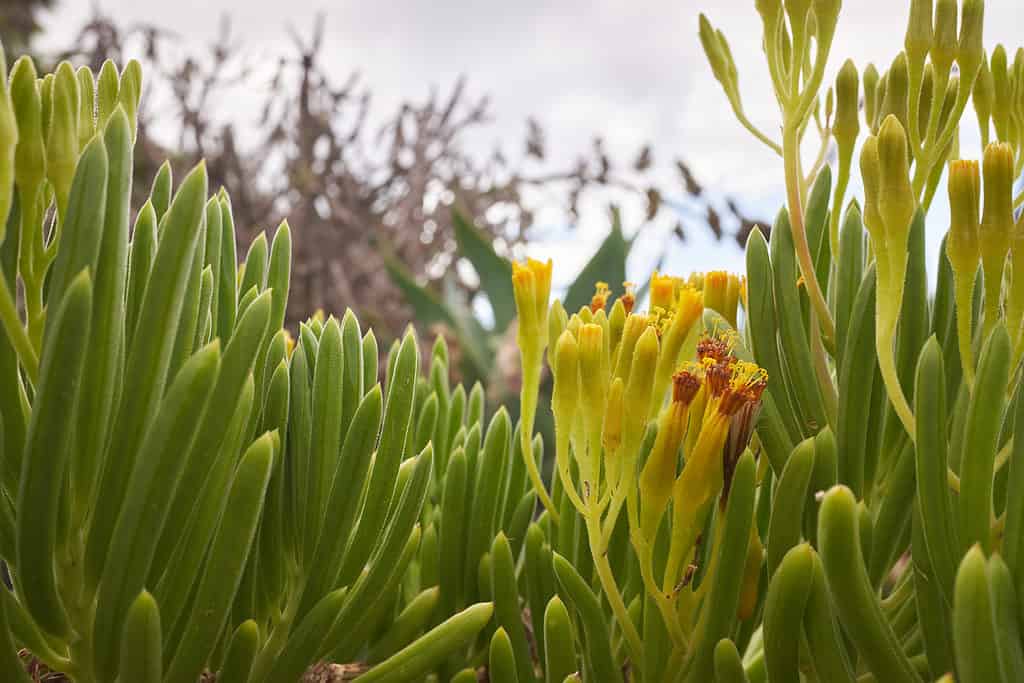
This evergreen succulent shrub is native to South Africa. It is very drought resistant and has clusters of golden flowers that are tufted and sweet-smelling. They are very attractive to many butterfly species, such as the painted lady butterfly. It grows six feet tall and has fleshy green finger-like branches. The branches and leaves grow densely on the bush, and the yellow flowers are upright facing and nearly one inch long.
2. Senecio haworthii – Woolly Senecio
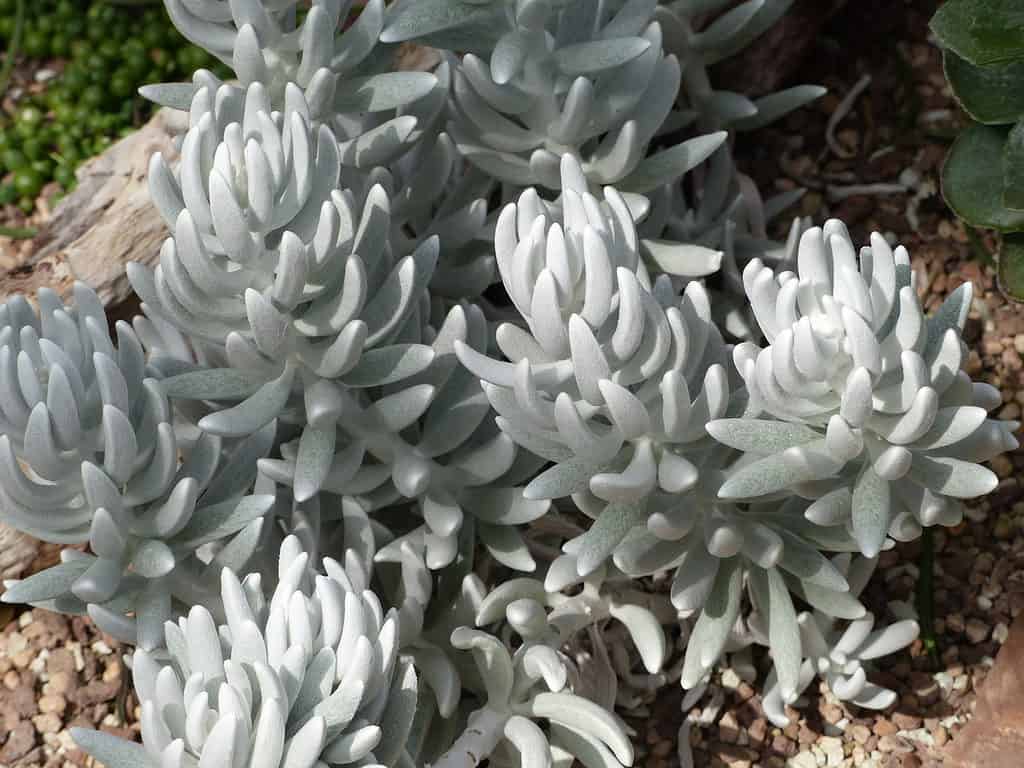
©guentermanaus/Shutterstock.com
This perennial succulent can be grown indoors or outdoors like a small shrub. It is native to South Africa and has hairy leaves that feel like soft felt. The leaves are very easy to root, so if you want a lot of free plants, this one is for you. It prefers sandy soil, infrequent water, and full sunshine. It is also nicknamed Cocoon Plant because of its fuzzy texture.
3. Senecio anteuphorbium – Swizzle Sticks
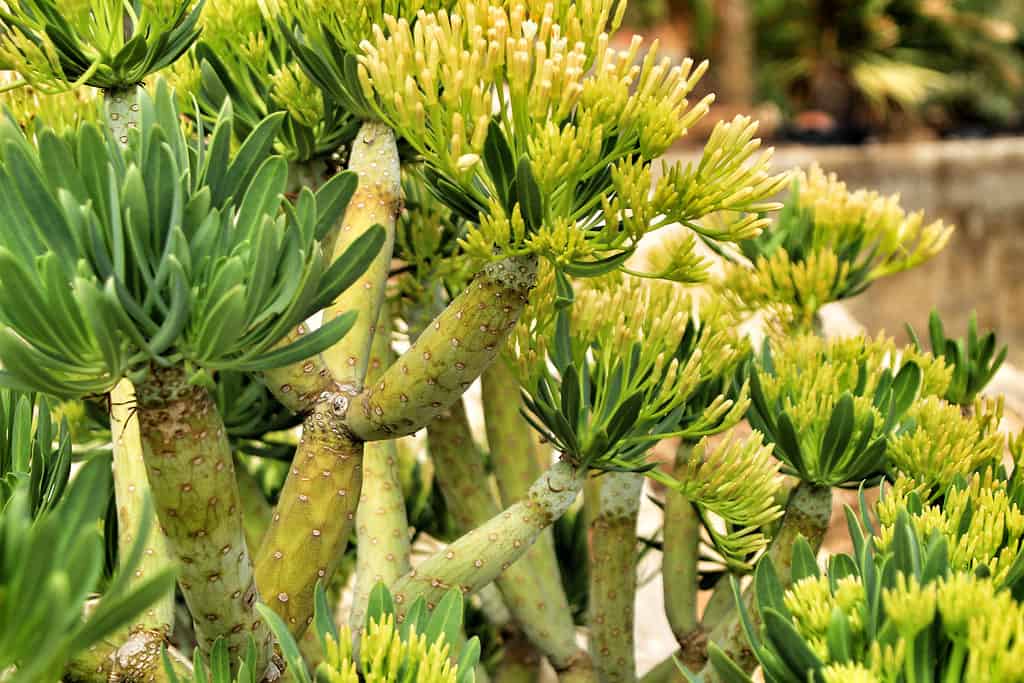
Senecio anteuphorbium (also known as Swizzle Sticks) is a small shrub that stands erect and may reach up to 5 feet tall. It has rounded stems that are gray-green and sword-like leaves. Swizzle Sticks produce white flowers in winter and is cold-hardy, tolerating temperatures as low as 40°F. It prefers Mediterranean and Tropical climates, but high humidity can be dangerous to it. Water less often as it can retain water in its leaves, and excessive moisture can damage the roots. It grows quickly and prefers partial or full sun. Water it moderately throughout the year, and propagate at any time.
4. Senecio articulatus – Candle Plant
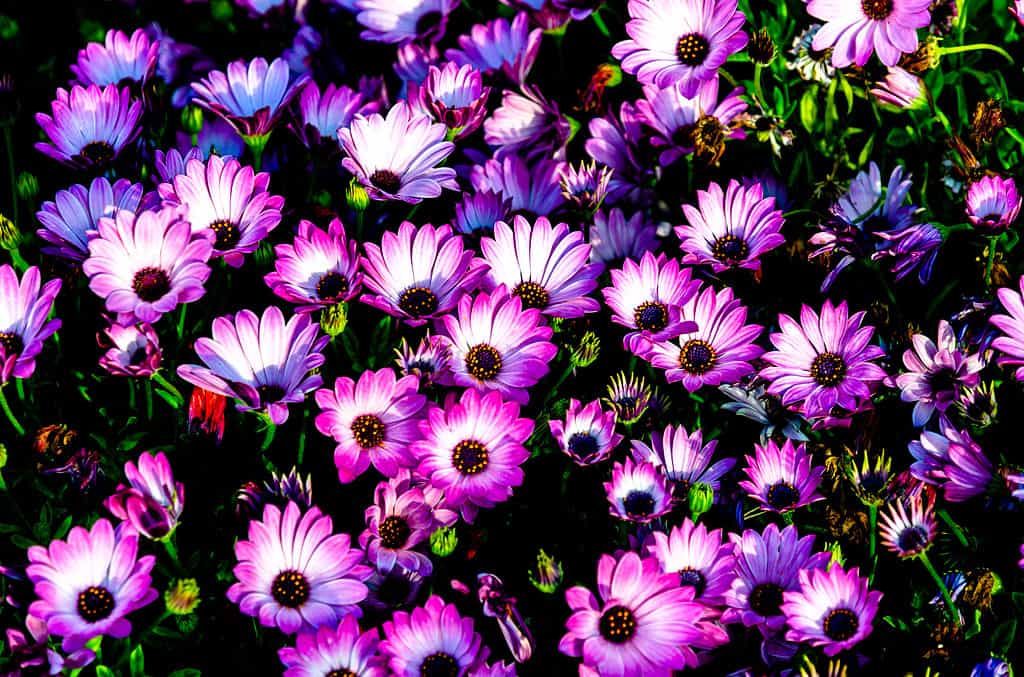
This plant is also called the sausage plant and hot dog cactus. It is a perennial native to South Africa. The candle plant has green-gray stems with green marks close to the bottom, reaching up to 2 feet tall. It is cold-hardy, tolerating temperatures as low as 45°F, but should be brought indoors during winter. It is drought-tolerant and should be fertilized during early spring. Use succulent potting soil for growing in pots.
5. Senecio canadicans – Angel Wings
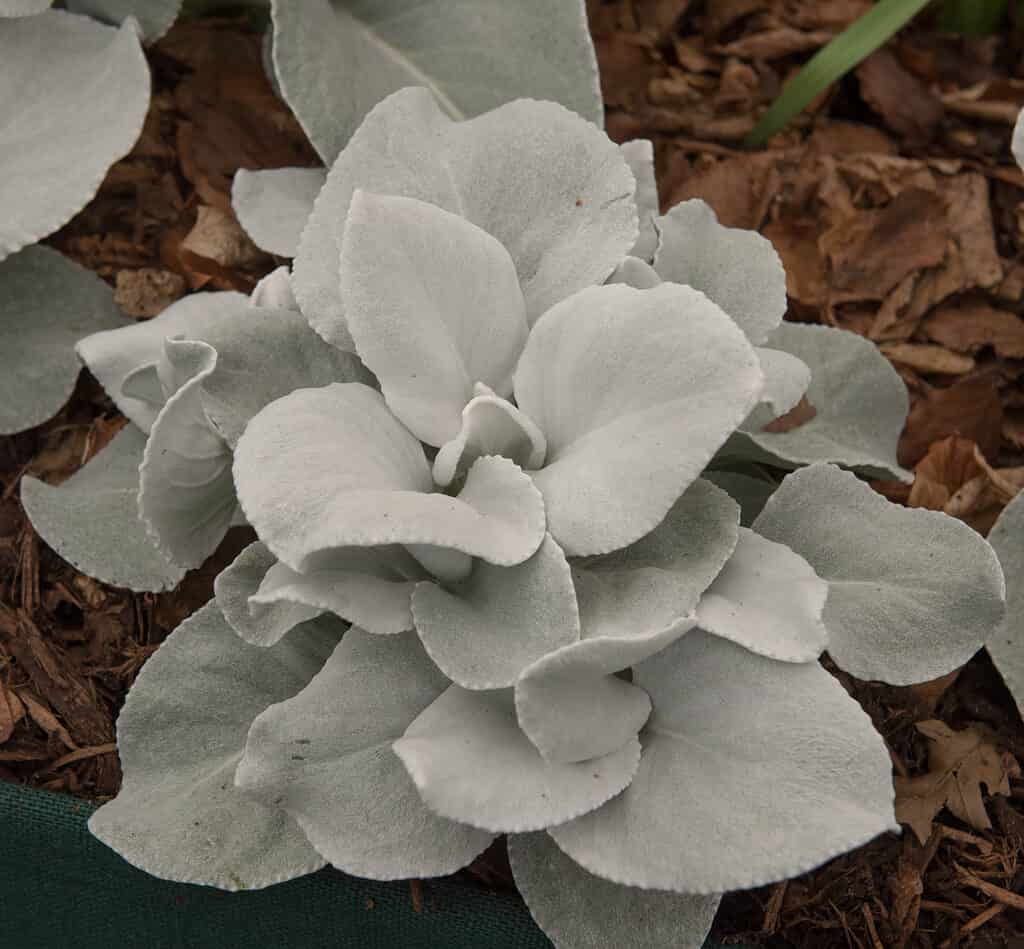
Senecio canadicans is a relatively new variety with an attractive shape and unique color. It is silvery white, and the leaves have a downy velvety texture. Its yellowish flowers and foliage color make it a popular variety to grow, and it can handle temperatures as low as 40 degrees Fahrenheit. Plant in well-draining garden soil and provide sufficient space when growing in a container. They grow best under full sun and cannot withstand heavy clay soil. Propagate by taking cuttings of young shoots in late summer and rooting them in water or soil.
6. Senecio cineraria – Dusty Miller
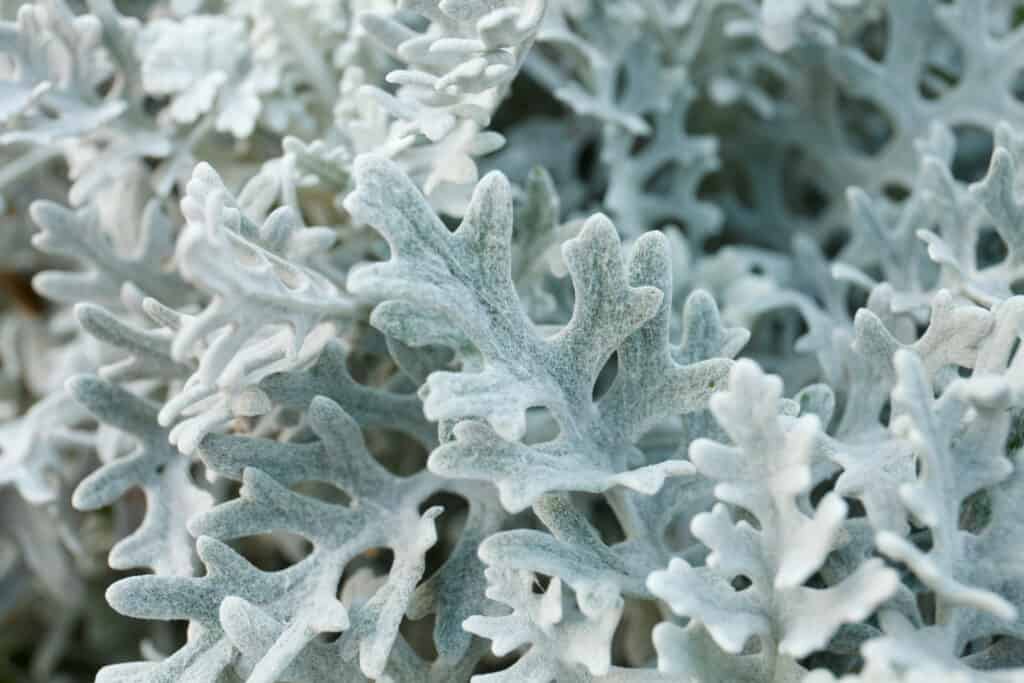
©Oxik/Shutterstock.com
Commonly known as Dusty Miller or Silver Dust, is a half-hardy annual variety of Senecio succulent in the daisy family, mainly found in the Mediterranean area. It grows up to 24 inches tall and produces cream or yellowish flowers. Its leaves are covered with silver-grey fleece. Place under full sun to encourage growth and avoid shady areas. It is highly drought-tolerant and can withstand arid conditions, so only water it when the topsoil seems dry. Feed with a liquid fertilizer every month to encourage new growth.
7. Senecio citriformis – String of Lemons
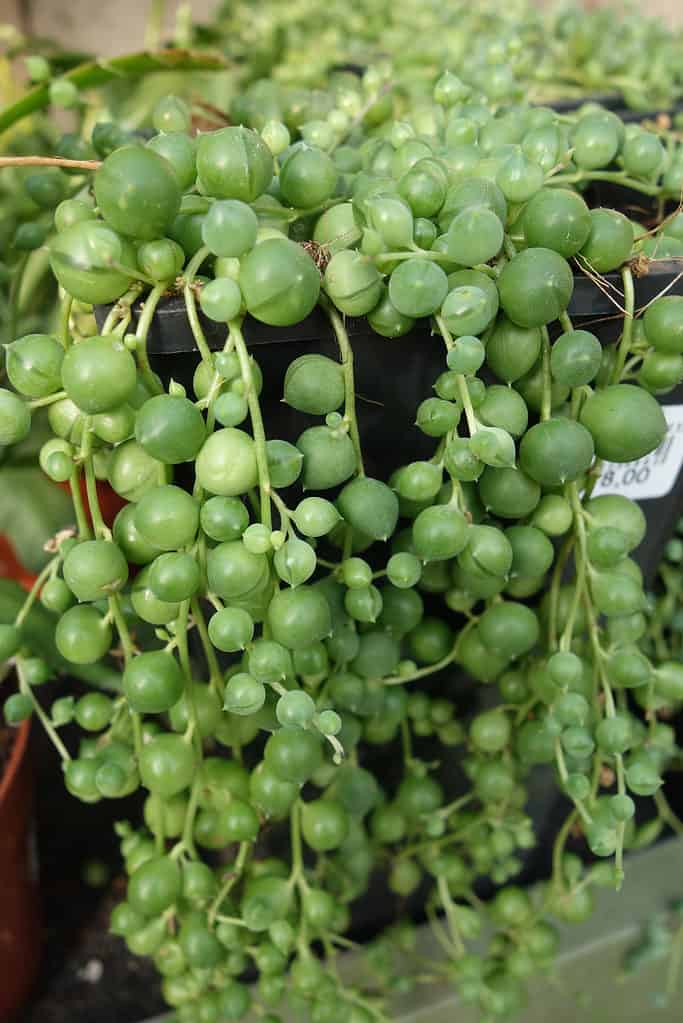
Commonly known as String of Tears or String of Lemons, Senecio citriformis is easily identifiable due to its lemon-shaped leaves, which range in color between green and blue. It can grow as tall as 4 feet and produces pompom-like flowers during the blooming period. It is toxic if ingested, so keep it away from pets and children. This succulent can withstand temperatures as low as 42°F but may not survive a hard frost. It is drought-tolerant, so water less often and plant in well-drained soil to remove excess moisture. It grows fast if given the right amount of fertilizer. Use a liquid fertilizer during the growing period.
8. Senecio ficoides – Blue Chalk Stick
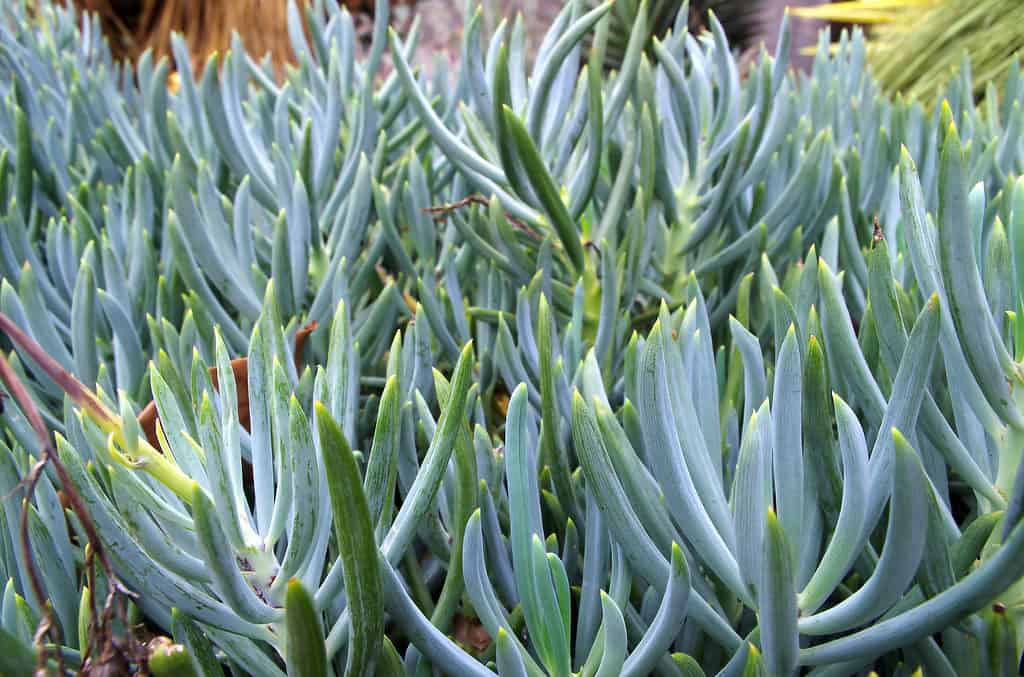
©nega/Shutterstock.com
This plant has many names, including Silver Senecio and Flat-leaved Senecio. It is an evergreen plant that may grow up to three feet tall. Its gray leaves have a waxy cover and small cream-colored flower heads at the end of the branches. Under direct sunlight, the leaves may turn a pale blue color. It requires a well-draining, neutral potting mix and moderate water from spring to fall. Propagation is easy and done by stem cuttings.
9. Senecio herreianus – String of Tears
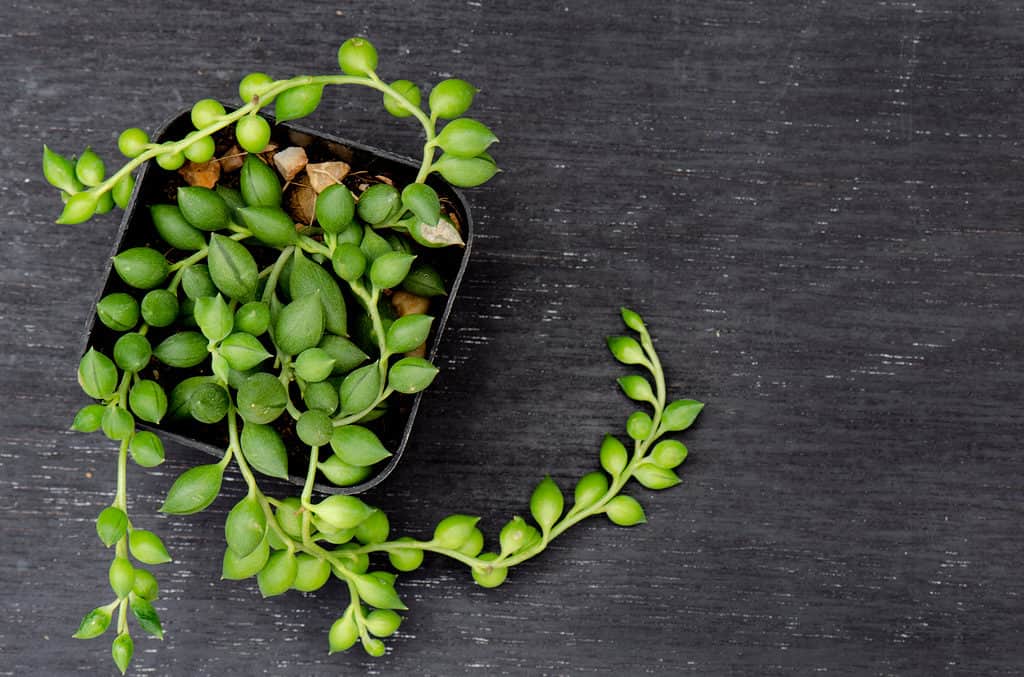
Also called the String of Tears, Senecio herreianus is a low-growing, trailing plant native to South Africa. It may grow over 1 foot long and has purple to green colored stems with leaves resembling raindrops or teardrops. The string of tears produces white furry flowers shaped like daisies. It prefers bright light, but not too much midday sun, and is drought-resistant, so don’t overwater it. It will bloom if its requirements are met. Try growing it in hanging baskets to beautify your garden.
10. Senecio jacobsenii – Trailing Jade
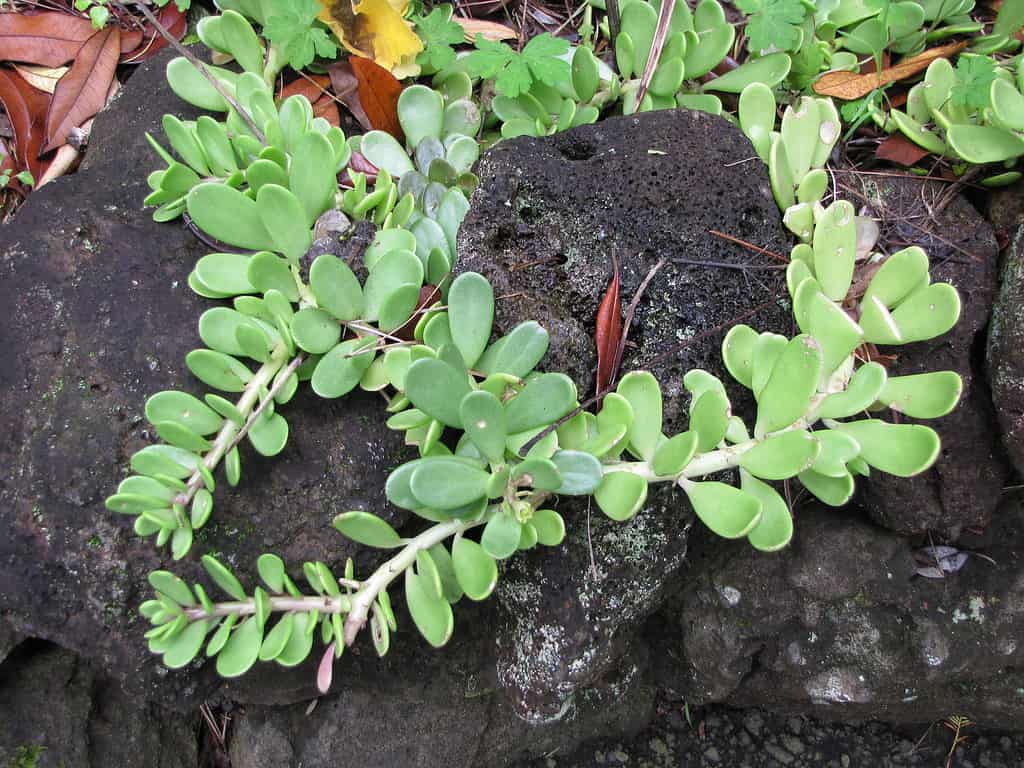
©Forest and Kim Starr / Flickr – License
Commonly known as trailing jade or weeping jade, is native to Kenya and Tanzania. It can be grown in hanging baskets and has thick stems that reach 4 ft long. The smooth, upright leaves are tolerant of cool temperatures and bright sunlight. It blooms orange-colored flowers that look like paintbrushes during the winter and can tolerate 40°F. The potting soil should include perlite, gravel, and coarser materials to improve drainage, and it is heat tolerant, so it doesn’t need frequent watering. Only water it when the top few inches of soil feel dry.
11. Senecio kleiniiformis – Spear Head
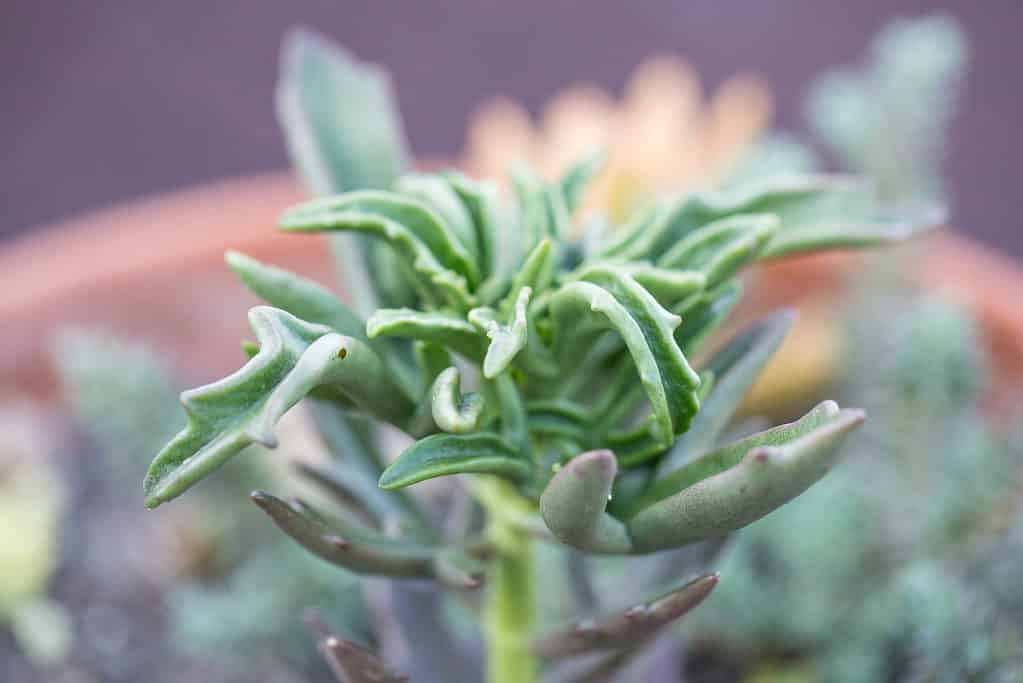
This is a succulent species suitable for warm and cool climates and is easy to maintain due to its few requirements. It grows slowly and produces attractive yellow flowers in early fall and summer. Identify it by its triangular spear-like leaves. Grow it in well-drained, sandy soil, allowing the top 2-inch of the soil to dry thoroughly before watering. Feed with a balanced fertilizer during the growing season.
12. Senecio peregrinus – String of Dolphins
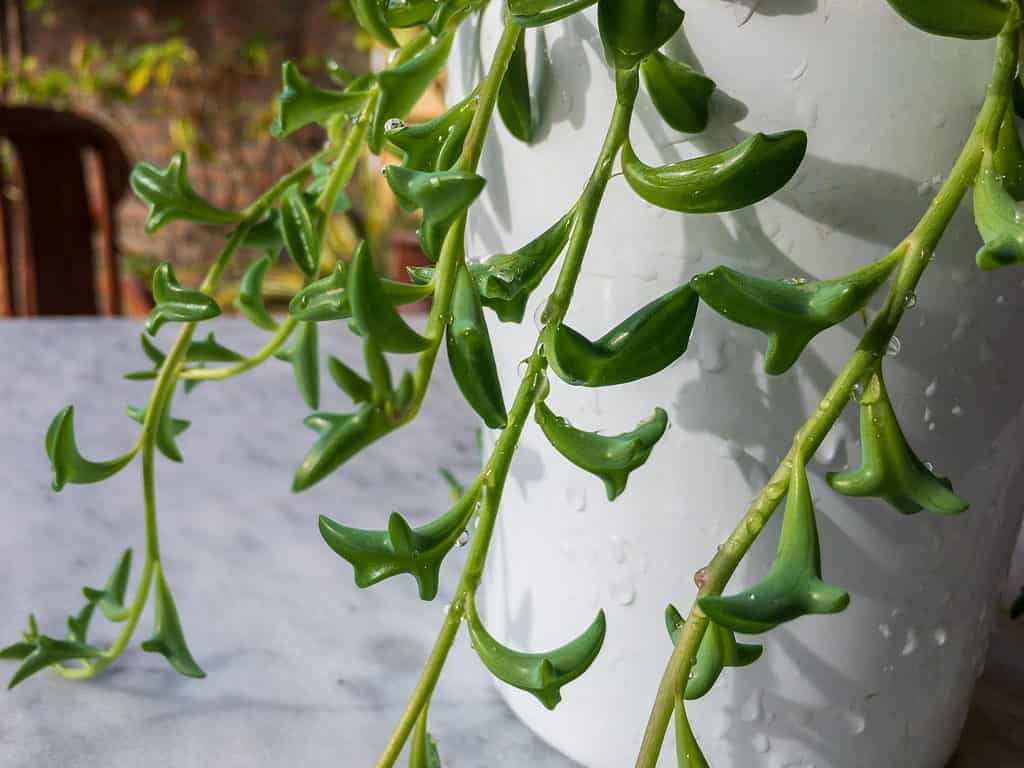
©iStock.com/Bilal photos
Called String of Dolphins, due to its dolphin-like leaves and stems, is one of the most beautiful species of Senecio. It blooms with pompom-like white flowers. Grow in plastic pots or hanging baskets, ensuring the soil is sandy and well-drained, and water when the soil looks dry. Prune the stems occasionally to encourage new growth. Keep away from frost, as prolonged exposure can cause death. Heat tolerant but cannot withstand soggy conditions.
13. Senecio radicans – String of Bananas
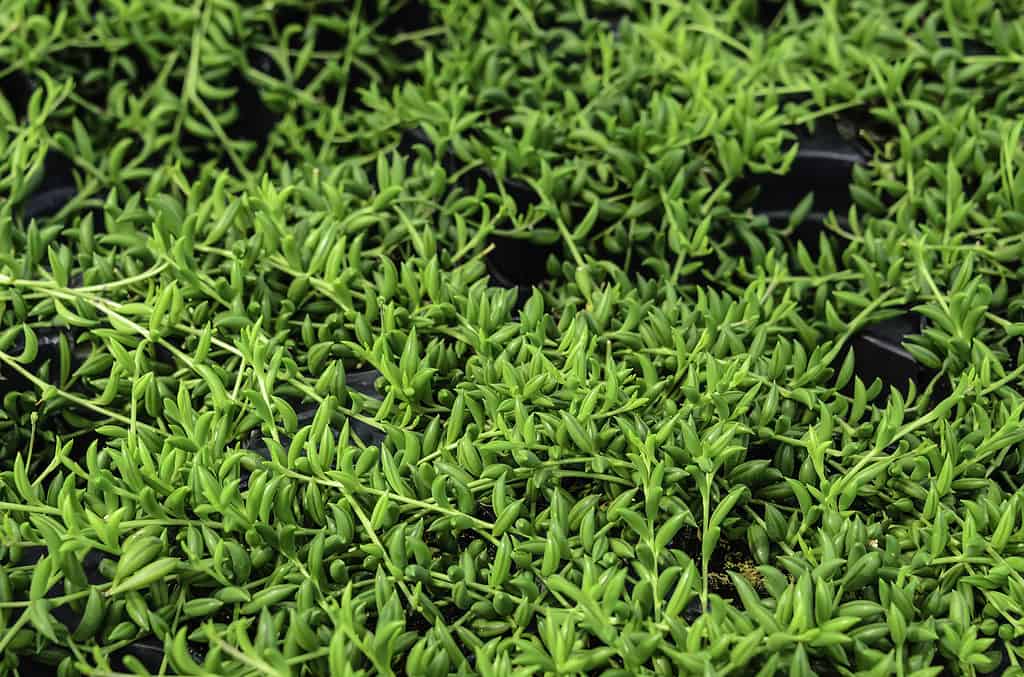
Known as Fishhook Senecio or String of Bananas, it is a trailing, perennial succulent with long stems and deep green leaves. It can be grown inside or outside and can reach 3ft in length. The plant blooms with yellow, lavender, or white flowers that smell like cinnamon and spice. All parts of this species are toxic, so keep them out of reach of pets and children.
Summary of 13 Types of Senecio Succulents
- Senecio barbertonicus – Barberton groundsel
- Senecio haworthii – Woolly Senecio
- Senecio anteuphorbium – Swizzle Sticks
- Senecio articulatus – Candle Plant
- Senecio canadicans – Angel Wings
- Senecio cineraria – Dusty Miller
- Senecio citriformis – String of Lemons
- Senecio ficoides – Blue Chalk Stick
- Senecio herreianus – String of Tears
- Senecio jacobsenii – Trailing Jade
- Senecio kleiniiformis – Spade Head
- Senecio peregrinus – String of Dolphins
- Senecio radicans – String of Bananas
Next Up
- Succulent Arrangements: Get Inspired!
- Are Succulents Poisonous To Dogs or Cats?
- Types Of Hen and Chicks Succulents
The post 13 Types Of Senecio Succulents appeared first on AZ Animals.
from Animal News, Facts, Rankings, and More! - AZ Animals https://ift.tt/43Bh8cD